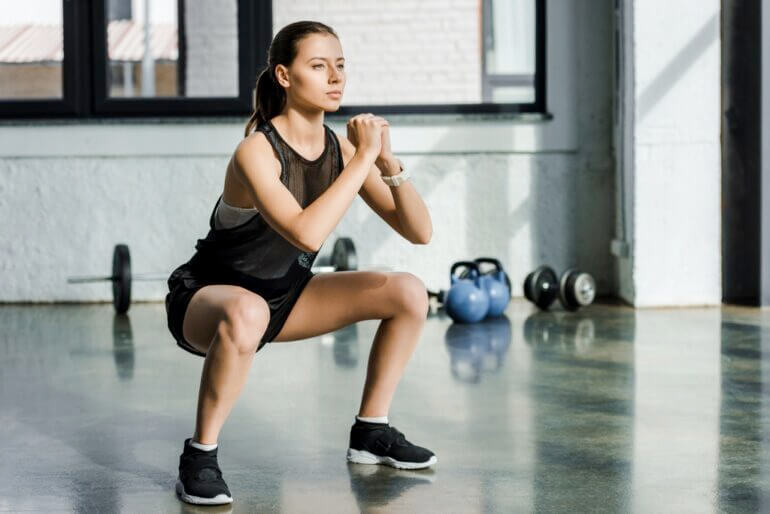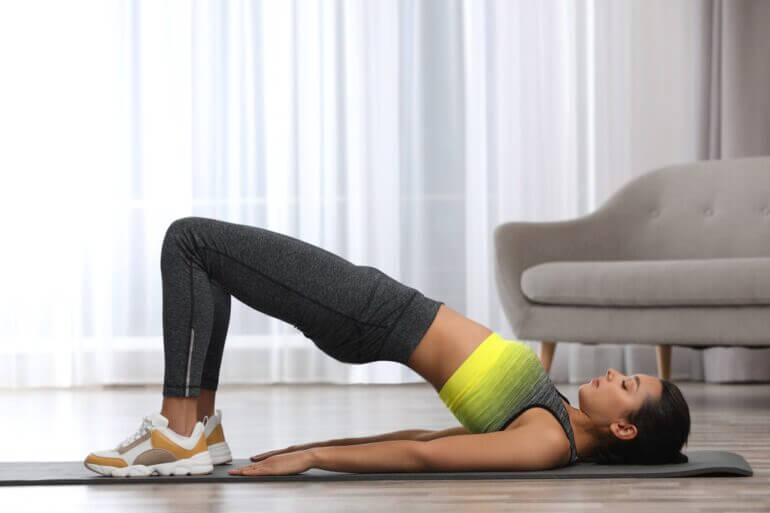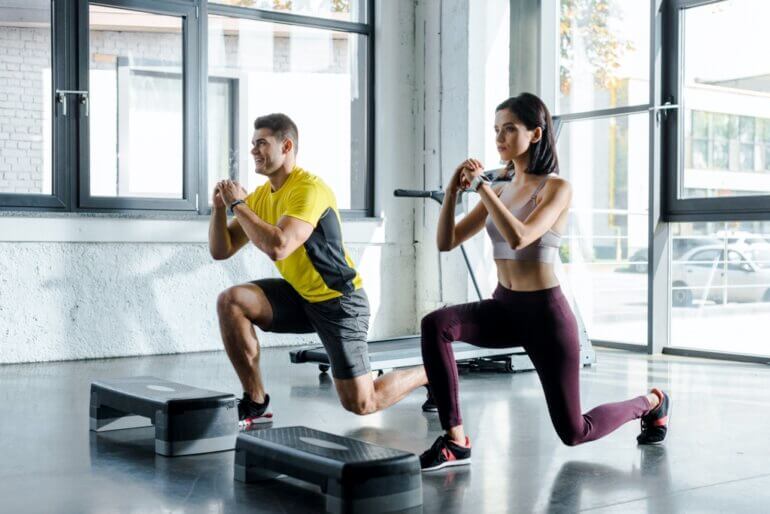I'm looking for trainers and PTs to share the benefits of training your glutes. There are lots of studies on how glute strength impacts various things, from posture to performance in certain kinds of workouts, etc. Please see my questions below.

1. What are the glutes?
The gluteals or “glutes” are a major muscle group of the hip and comprised of 4 primary muscles- gluteus maximus (btw, the biggest and strongest muscle group in the body), gluteus medius, gluteus minimus, and the tensor fascia latae. There are six (the “deep six”) additional smaller muscles that are often not discussed, but should be mentioned because they assist in rotation of the hip, pelvic floor movements, and lumbopelvic stabilization as well.
The glutes are the primary muscles that extend, stabilize, and rotate the hips and pelvis. Functionally, the glutes provide humans a broad range of activities ranging from the basic type, like standing, walking, sitting, stairclimbing, to more dynamic activities such as running, squatting, deadlifting, jumping, golfing, Crossfitting, swimming, biking, dancing, you name it; in fact we would have a very limited repertoire of locomotion without our glutes to propel us through space.
2. Would you say this is an important muscle group to train?
Absolutely. I often get asked, “can we get by in life without training our glutes?” to which I respond, “Sure, even if you live the couch potato, sedentary, bare minimum lifestyle, they’ll still work for you.” BUT, if you’re like many of the athletes and active people that we see at our physio practice who demand a lot from their bodies because of what they love to do, then training the glutes becomes essential.
3. What are some good go-to exercises to add to your routine that train the glutes?
The good thing about the glutes is that they don’t require fancy exercises to grow or strengthen them. You may have seen some crazy or creative exercises out there on social media, and truthfully, they do get the job done, but I tell our clients to not let that scare them away from working the glutes.
I often keep things simple for the most part. Exercises like deadlifts, squats, bench bridging, good mornings, lunges, box jumps are a great place to start for most people, and you can use and combination of dumbbells, barbells, hex bars, bands, kettlebells, or bodyweight resistance to create an effective glute program. I do recommend including single leg variations whenever you can to make sure that clients have opportunities to work their weaker side as well. The more important principle here is progressive overload- making sure that you are including the right intensity, volume, variety, time, to build the gluteal muscles and strength.



4. What are some of the benefits of having stronger glute muscles?
Because of their attachments, having strong glutes can directly and positively impact your knee health, posture, and low back during basic and demanding physical activities. There have been many studies with runners with knee pain, who, having only received a glute strength program, had a greater reduction in knee pain over time than runners who only strengthened the muscles around the knee. In fact, without strong glutes, we would not be able to stabilize the pelvis during an activity as simple as walking (we call this a “hip drop”).
While the value of having the standard “good” posture has become debatable in some circles, we do know that the glutes play an important role in your ability to stack your pelvis under your ribcage and manage intrathoracic pressure, which becomes important for stability as well. Because the pelvic stability plays a big role in lumbar spine stability, having strong glutes has been shown to maintain good back hygiene or reduce low back pain as well.
As the most powerful extensors of the hip, if you’re an athlete or active person who likes to push the limits, you need to have strong glutes. Period. All performance-based movements require the glutes. In fact, we often see clients who are overhead athletes (tennis players, baseball pitchers, for example) end up with shoulder injuries stemming from weak glutes! As an athlete, you need to generate power, stability, speed on demand. (Do stronger glutes play a role in good posture? Do they help you do other workouts/spots? Do they assist in stability as you go about your day?) Please briefly explain each.